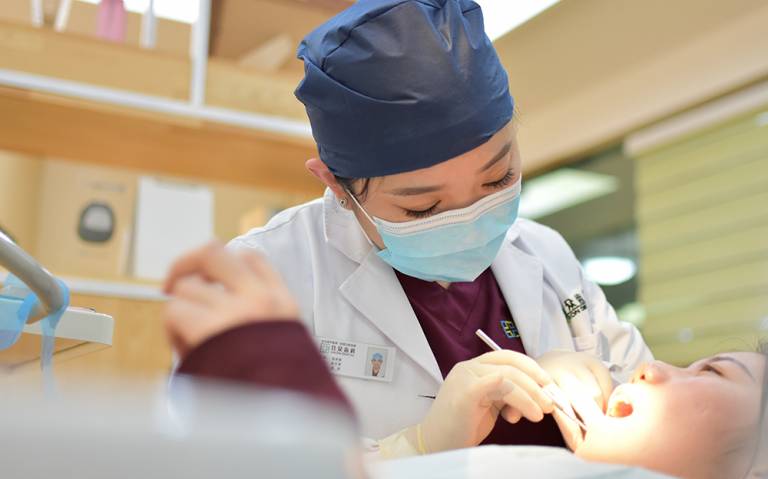SMART treatment for tooth decay in children
24 November 2021
UCL researchers and industry partners have developed a new dental filling material to ensure dental procedures on younger patients are fuss-free, quick and cost-effective. The revolutionary SMART composite enables painless tooth restoration in less than 5 minutes.

The SMART (Self-adhesive Material for Atraumatic Restoration of Teeth) composite was developed and tested (in Phase 1 clincal trials) by Professors Anne Young and Paul Ashley (UCL & UCLH) with funding from the National Institute for Health Research Invention for Innovation (NIHR i4i) Product Development Award.
Tooth decay (dental caries) is the most common disease affecting humans (60-90% of children and 100% of adults). In the UK, tooth decay is the most common reason for children to be admitted to hospital. Treatment of tooth decay is particularly challenging in children as it involves removal of the diseased tissue (drilling) and tooth repair (placing a filling material), a painful and lengthy procedure requiring local anaesthetic. Treatment is hampered further by the limited lifespan of fillings and decay often returns.
The SMART material, is a self-bonding, easy-to-place dental filling material that can restore a tooth to its original appearance, shape and function in just two minutes in a non-invasive procedure, without the need for local anaesthetic injections, drilling and acid etching which can cause discomfort and anxiety among younger patients.
In addition, the composite material provides an antibacterial protective barrier over the tooth and helps it to repair decayed surfaces.
Further information
- 'Scoping review of trials evaluating adhesive strategies in pediatric dentistry: where do simplified strategies lie?' BMC Oral Health
- NIHR Invention and Innovation (i4i) programme
- Main image, credit Unsplash
 Close
Close

